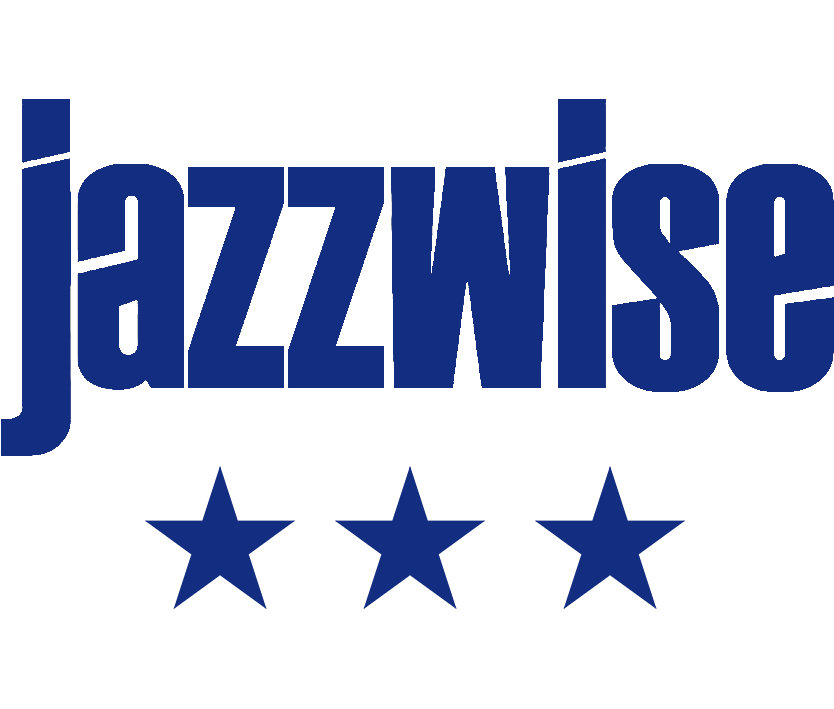Dániel Szabó Trio meets Chris Potter Contribution
I think it would be pointless to give a blow-by-blow preview of this exceptional album. Suffice to say that the combination of Dániel Szabó and Chris Potter is an incredibly fertile meeting of musical minds. With Szabó’s demanding compositions, the magnificently crafted solos and the lightning but intelligent interaction of the players, the whole record is like a breathtaking high-wire act, because with such original ideas and such clear phrasing any mistake would be glaringly obvious, yet they all stay on the wire, on top of their game.
Péter Pallai
Artists
Dániel Szabó - piano, Fender Rhodes
Chris Potter - tenor and soprano saxophones, bass clarinet
Mátyás Szandai - double bass
Ferenc Németh - drums
About the album
All compositions by Dániel Szabó
Recorded by Dávid Schram at Pannónia Studio, Budapest, 27-28 August, 2009
Mixed and mastered by Michael Perez-Cisneros, New York, october, 2009
Photo: István Huszti
Artwork & design: Bachman
Produced by László Gőz
Label manager: Tamás Bognár
The recording was sponsored by Greenergy Hungary Holding
Supported by the National Cultural Fund of Hungary
Reviews
Raul d'Gama Rose - All About Jazz ***** (en)
Stuart Nicholson - Jazzwise *** (en)
Doug Ramsey - Rifftides (en)
Bob Brookmeyer - Amazon.com ***** (en)
Marc Myers - JazzWax (en)
Franpi Barriaux - CitizenJazz (fr)
Eric Quenot - Jazzman / Jazz magazine (fr)
Patrick Španko - skJazz.sk (sk)
Márton Attila - Magyar Demokrata (hu)
Sinkovics Ferenc - Magyar Hírlap (hu)
Currently out of stock.
Dániel Szabó Trio meets Chris Potter: Contribution
Jazz builds on ancestral energies – on natural ease, spontaneity and communal spirit. It’s one of those rare forms of art that still preserve the values of communal jamming and in which tradition and the innovative spirit of modernity blend in harmonious unity.
The makers of this album – just like us – follow their own paths with youthful energy and self-confidence. Immersing ourselves in the music we experience how new alternatives emerge from harmonies that take us back to the source of inspiring joy: nature itself. This is our real contribution.
Making this recording was a very joyful experience for me. I first met Dániel at a gig in Gyor, and honestly I wasn’t sure what to expect. Usually the phrase “local rhythm section” means one should expect the worst, but it was quickly apparent there’s nothing “local” about Dániel! I hear all kinds of influences in his playing, including a deep knowledge of both jazz and the wonderful Hungarian classical tradition, and he ties all of it together in a beautiful and unique way.
This was not easy music, most of it had never been played, and we had a limited time to get it all together, so all of us had to be intensely focused. In the process, I think we found a great spirit of camaraderie together, and I think that spirit shines through when you listen to this music.
Hungary has become a second home to me since my wife is Hungarian, and I’ve experienced a lot of new and unexpected benefits from this connection, including the friendship of the gentlemen on this recording, who also happen to be some of the strongest musicians I know. I hope you enjoy listening to it as much as I enjoyed playing it.
Chris Potter
Contribution
The contribution of four musicians of differing character and personal history to something born at a given and unrepeatable moment and for which compositions only serve as a channel. It is the pouring of their own ideas and individual creativity into a common pool or, to put it in other words, it’s an extreme openness towards and acceptance of the others. It’s called finding a common language. It means not letting go, what’s more, making use of the opportunities implicit in that unrepeatable moment. It means discovering together the character of compositions and giving something with the music on this album that will, hopefully, enrich all of us and others too.
Contributing with these few pieces to something larger than all of us, larger than music itself, larger than everything – contributing to the Great Entity.
Dániel Szabó
Translated by Péter Pallai
Fellow spirits
Apart from their amazing talent, the musicians on this record have at least one other thing in common, and it’s their total openness. I heard Dániel Szabó several years ago in London play unaccompanied piano displaying his homeland’s rich classical heritage but, at the same time, improvising with zestful abandon. He is still often seen and heard in Borbély Műhely, one of Hungary’s finest ethno-jazz outfits where he draws from yet another aspect of his own country’s abundant musical treasures. But catch him with his own trios or quartets and it’s a toss-up whether he’ll play a fiery post-bop set or some highly cerebral music. Then again, hear him with the Modern Art Orchestra and you’ll be amazed at the dramatic feel he has for the sonorities of a big band.
Having won the Jas Hennessy Solo Piano Competition at the 2000 Montreux Jazz Festival Dániel Szabó went on to complete his studies in the US, graduating in 2005 from the New England Conservatory where he was taught by Bob Brookmeyer and Danilo Perez, The following year he won the Grand Prize of the City of Paris at the Martial Solal Jazz Piano Competition. Yet it is not the prizes but his combination of passion, skill, sense of humour and musical intelligence that makes Dániel Szabó stick out - not to mention his originality as a composer. He made an even bigger splash with his previous album on Warner featuring Kurt Rosenwinkel. The eminent British critic, Jack Massarik wrote: One could describe Szabó’s highly original, closely bonded trio music as chamber jazz but for the additional fire and sensuality of their Hungarian blood, which keeps things as forceful as they are lyrical.
It may seem a bit superfluous to introduce Chris Potter in these notes as he is one of the, if not the most influential tenor-sax player of his gene-ration. He is very similar to Szabó inasmuch as it’s not the flawless technique and effortless command of his instrument that make most of the impact but his natural gift to draw inspiration from almost any musical source. He has an uncanny ability to make his reeds speak different languages in different settings and yet to remain true to himself. Again, like Dániel Szabó, he can express the full range of emotions in his music. Anyone who has heard the searing, often funky intensity of Chris Potter’s Underground will, at first, not believe his ears when confronted by the carefully crafted contemporary chamber-jazz of his recent album, Song for anyone.
Probably the least known of this foursome is bass player Mátyás Szandai whose relative lack of fame is entirely due to his immense professional humility. He first became noticed in 1996 when, at the age of 19, he was picked by the leading figure of Hungarian ethno-jazz, multi-reed instrumentalist Mihály Dresch to play in his world-famous outfit where he has remained ever since. However, in the last thirteen years he has become one of the most in-demand players on his instrument in Hungary. In a country choc-a-bloc full of top notch bass players this is no mean feat. He is probably the bass player most often asked to back visiting jazz giants. Thus he had a chance to play with Archie Shepp, David Murray, Herbie Mann, Chico Freeman, Rosario Giuliani, Charlie Mariano, Hamid Drake, William Parker, Rob Brown, Kurt Rosenwinkel, Gerard Presencer, Zbigniew Namislowski and Chris Potter too. I remember one occasion when Archie Shepp - following his recording for this label with the Dresch Quartet was gigging with the band in Budapest - was so impressed by Mátyás Szandai’s playing that he kept egging him on to solo more and more. Szandai is the ideal player for both Szabó and Potter (indeed he plays in all of Szabó’s own formations) due to his openness, his unbelievable versatility and, not least, to his tremendous virtuosity which, with characteristic modesty, he tends to keep under wraps.
Ferenc Németh is well known both on the international and the domestic stage. An incredibly subtle but blindingly brilliant drummer, he has been working with ace guitarist Lionel Louke for the past decade. He started drumming at the age of three, and ended up in New York via Budapest’s prestigious Ferenc Liszt Academy of Music, the Berklee School of Music in Boston, the New England Conservatory and the Thelonious Monk Institute in Los Angeles. One can say without exaggeration that he has played with almost everyone who’s anyone in the world of jazz. In 2005 he recorded his debut album Night Songs, featuring John Patitucci, Chris Cheek, Mark Turner, Lionel Loueke, Aaron Parks and eight of his own original tunes that showed him to be a tremendously able and original composer. Also, for a European drummer to become such a highly prized sideman in the viciously competitive atmosphere of New York says a lot for Ferenc Németh who, notwithstanding his understated approach, is continually pushing against the boundaries of jazz drumming.
I think it would be pointless to give a blow-by-blow preview of this exceptional album. Suffice to say that the combination of Dániel Szabó and Chris Potter is an incredibly fertile meeting of musical minds. With Szabó’s demanding compositions, the magnificently crafted solos and the lightning but intelligent interaction of the players, the whole record is like a breathtaking high-wire act, because with such original ideas and such clear phrasing any mistake would be glaringly obvious, yet they all stay on the wire, on top of their game.
Péter Pallai
Many thanks to
all who play on this album and who have contributed to its birth:
First of all to Chris who provided an unbelievable amount of inspiration to all of us with the wealth of ideas in his playing, with his openness and his positive aura.
To Mátyás and Ferenc for their humility towards the music and their extremely high artistic standards!
To Dávid Schram for the quality of the recording, to Michael Perez-Cisneros and Jonathan Jacobi for the quality of sound!
To Károly Csider and Balázs Meggyesi for the first class instruments!
To everyone at BMC for their uncompromising effort to create real value in which, once more, I gladly played my part.
Special thanks to Ákos Kassai and Kata Lukács for their commitment to and love of culture and – within that – improvised music.
Many thanks to all members of my family but especially to Betti and Áron!
I thank the Creator that I could experience again the struggles and joys of composing and the beauty of play.

